HotSpots H2O: “Day Zero” Looms for South African Province
Government dysfunction has multiplied drought risks.
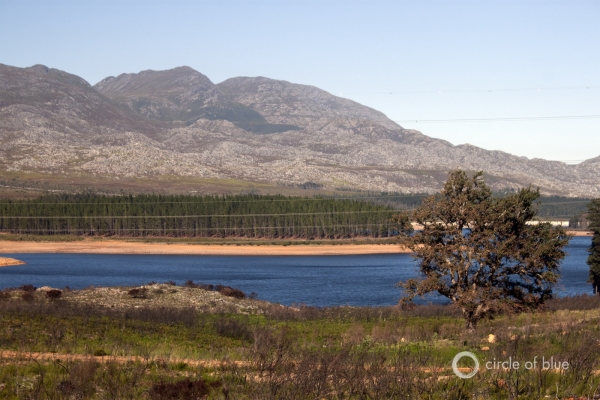
Steenbras Dam, east of Cape Town. Photo © Brett Walton / Circle of Blue
By Laura Gersony, Circle of Blue — June 20, 2022
South Africa’s Eastern Cape province is scrambling to avoid a “Day Zero” scenario in which taps run dry.
Water levels behind Impofu Dam — which forms the second-largest reservoir in Nelson Mandela Bay district — dropped too low for extraction on June 13, according to data released by the local government. The largest reservoir, formed by Churchill Dam, is projected to do the same on June 25. The shortages would leave 107 suburbs and townships without tap water.
In remarks last week, South Africa’s water minister Senzo Mchunu attributed the deficit to a severe multi-year drought which has afflicted the country since 2015—a weather event made more likely by global climate change. While the Eastern Cape has received above-average rainfall since last year, unsustainable water use, widespread pollution, and poor infrastructure prevented dams from recovering to their normal levels.
Many citizens blame municipal leaders for the crisis, saying that incompetence, dysfunction, and corruption have prevented necessary infrastructure repairs. At present, the district loses 30 percent of its water to leaky pipes.
According to the civil action nonprofit Outa, leaders should have foreseen drought risks and patched leaks in the distribution system in order to preserve supply. “Municipalities across the country have failed to plan for climate shocks, but also, the poor state of municipalities has resulted in local government being unable to respond to the poor quality of water, the poor state of wastewater treatment, the lack of access to water and the quantity of safe drinking water available,” Outa wrote in a statement to Creamer Media.
To avoid Day Zero, Mchunu said the city must reduce its water extraction by one-fifth, leaving a budget of 50 liters, or 13 gallons, per person per day.
The water shortage comes not five years after Cape Town narrowly avoided its own Day Zero. The city came within inches of disaster, as citizens halved their water consumption and early winter rains boosted reservoirs. Eastern Cape may not be so lucky: significant rains are not in the forecast until September.
Public health professor Jo Barnes said that Cape Town should have been a wake-up call.
“How are people supposed to live on just 50 liters of water per day?” Barnes, a professor at Stellenbosch University, told the Irish Times. “They had the example of what happened in Cape Town in 2018 as a warning of what was to come.”
The national government has taken over in a last-minute bid to avert disaster. Last week, the council approved Mchunu’s intervention plan, which transfers 33 million rand — about $2 million — to address the crisis. The plan includes measures to repair leaky pipes and crack down on illegal water use.
Despite national assistance, responding to the disaster is still stretching the municipality’s capacity. Because the city does not have enough qualified people, the Business Chamber volunteered its plumbers and engineers to assist with repairs. Businesses are partnering with the local government to fund leak repairs.
“Taps running dry risks an unprecedented health and humanitarian crisis in the metro, particularly in the most disadvantaged areas,” wrote Denise van Huyssteen, CEO of the district’s Business Chamber. “This is a time when we all need to stand together and work for the greater good of Nelson Mandela Bay.”
Laura Gersony covers water policy, infrastructure, and energy for Circle of Blue. She also writes FRESH, Circle of Blue’s biweekly digest of Great Lakes policy news, and HotSpots H2O, a monthly column about the regions and populations most at-risk for water-related hazards and conflict. She is an Environmental Studies and Political Science major at the University of Chicago and an avid Lake Michigan swimmer.

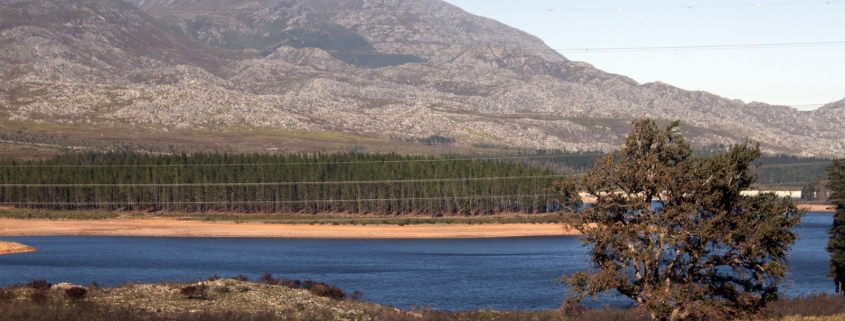

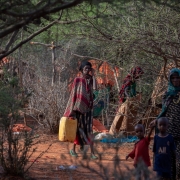
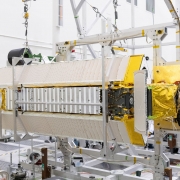
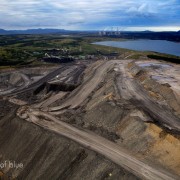
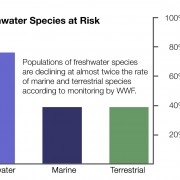
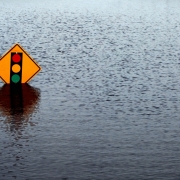
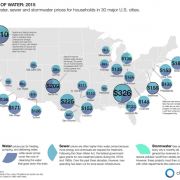



I live in Port Elizabeth and have watched both national government and our municipality’s combined inaction, corruption and incompetence steadily drive our metropole into the mess it is now. Water is just one of our problems. Huge levels of violent crime, a faltering electrical grid, collapsing roads, shabby medical facilities and a corrupt police force are a few more examples. Once an attractive tourist destination and a beautiful city to live in. Now, just a few decades later, reduced to a filthy Third World cesspit.